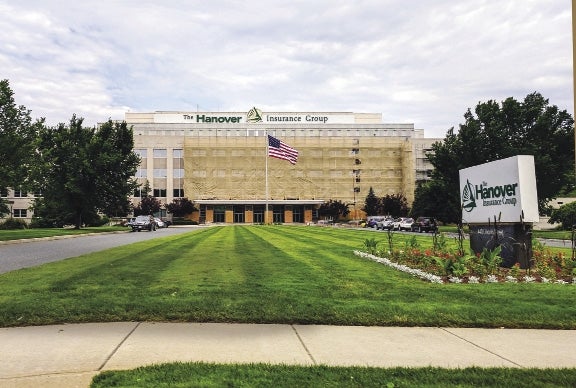In 1996, Worcester city officials eyed the underutilized, polluted former industrial area along Summer Street near Union Station and wanted something better.
So they made a deal.
If Saint Vincent Hospital agreed to move downtown from its Winthrop Street location and spend $215 million on a new 299-bed hospital, the city would waive part of the hospital’s taxes over the following 18 years.
The deal worked, boosting downtown at a time when the neighborhood desperately needed it. After a separate $40-million city- and state-funded cleanup, Saint Vincent moved 1,223 employees downtown, hired another 425, and spent $281 million on its new facility, which opened in 2000.
In a city with high business property tax rates, such breaks have become a key economic development strategy.
“We’re very judicious in how it’s been used over the years,” Michael Traynor, Worcester’s chief development officer, told the City Council’s economic development committee in June.
From 2012 to 2017, two dozen property tax-break agreement spurred more than $882 million in private investment in Worcester, according to a review of the agreements active over those five years. Those projects added more than $202 million in new real estate property values, yielding an additional $35.5 million in tax revenue.
But they haven’t always worked out.
Massachusetts has revoked the state benefits – a break from their corporate income tax – for 25 percent of those Worcester deals, over failure to create enough jobs or investment. Yet, the city, with the exception of one, has kept all the local benefits in place, including for major names in the Worcester community: Hanover Insurance Group, Saint-Gobain, Unum, Beechwood Hotel.
Despite the businesses not holding up their requirements, they remained successful in some aspects of the agreement or continued to be a vital contributor to the city’s economy, City Manager Edward Augustus said in a memo to the City Council.
‘Looking at less of these’
Massachusetts cities and towns began tax-increment financing in 1993 to entice businesses to move or expand, hoping growing jobs and property values would net a tax collection increase.
Eileen McAnneny, the president of the Massachusetts Taxpayers Foundation, said TIFs are one of the few tools communities have to draw companies, whose property-tax bills can be among their biggest expenses.
“Ideally, you’d have a tax structure where you don’t need tax breaks,” she said. “It’s simple, fair and it doesn’t affect economic decisions one way or another.”
Worcester is one of 16 Central Massachusetts communities with a split tax rate where commercial/industrial properties pay a higher rate than residential ones. For 2017, the Worcester business property tax rate is set 71 percent higher than the residential rate.
Worcester officials don’t entice businesses with the promise of a tax break, but make companies demonstrate why they need the discount in order to expand or start operations, Traynor said.
Anthony Economou, a city councilor who chairs the economic development committee, called the city’s use of business tax breaks necessary to improve areas such as the South Worcester neighborhood where Polar Beverages received a 40-percent tax break to expand.
“When you look at the numbers, the numbers don’t lie,” Economou said As the city’s economy strengthens, “we’ll probably be looking at less and less of these,” he said.
The 24 Worcester business tax deals active in the last five years resulted in 1,700 new full-time jobs, according to the city. Three new businesses were brought into and 14 kept in the city.
The case of Saint Vincent was one where the city was looking to bring active use to vacant or blighted sites. That deal was a little different, where rather than a percentage off its annual property tax bill, Saint Vincent agreed to set targeted tax payments each year – regardless of what the property value and tax rate were. In 2015, the last year of its tax break, Saint Vincent paid about $28.6 million in property taxes.
In July, Augustus recommended City Council give a 70-percent, 10-year tax break to a proposed $21-million, 48-unit mixed-used housing development at avacant Kelley Square site.
City officials are in the early stages of developing a micro-TIF program to help small businesses.
Bad breaks
Even when the job requirements aren’t met, Augustus said TIF deals still work in the city’s favor, as the businesses enhance their role in the city economy, which is why the city terminated only one of the 24 deals – Universal Metal, which was forced to close.
At Hanover Insurance, the city gave the company a 5-percent tax break in 2002 as it planned a major expansion of its Lincoln Street headquarters. But a stock-market downturn forced Hanover into more than 1,200 layoffs.
“We have since managed a very successful reorganization effort and positioned our company as a leading property and casualty company with a bright future,” said Hanover spokesman Michael Buckley.
Saint-Gobain, an 132-year-old abrasives manufacturer said it lost business to competition in China. It didn’t add any of the 41 jobs it promised.
Despite this, Saint-Gobain remains active in the community, contributing $500,000 annually to region nonprofits, and will increase employment if customer demand improves company spokeswoman Lauren Howe said.
The Beechwood Hotel cut workers but also invested about $12.5 million.
“[We have] not been standing still,” hotel owner Charles Birbara said.
Unum ended up cutting 97 jobs but subleased office space it no longer needed to 11 companies with a combined 178 full-time workers.
“As the first business to invest in the City Square project in early 2009, we’re proud of the role we played in the success of the development,” said Unum spokeswoman Mary Fortune.

